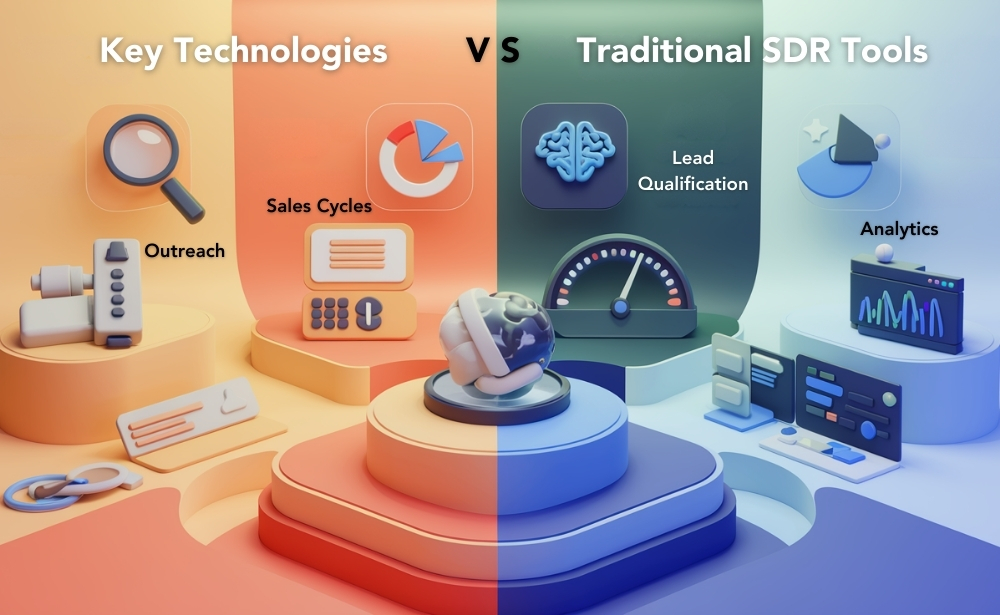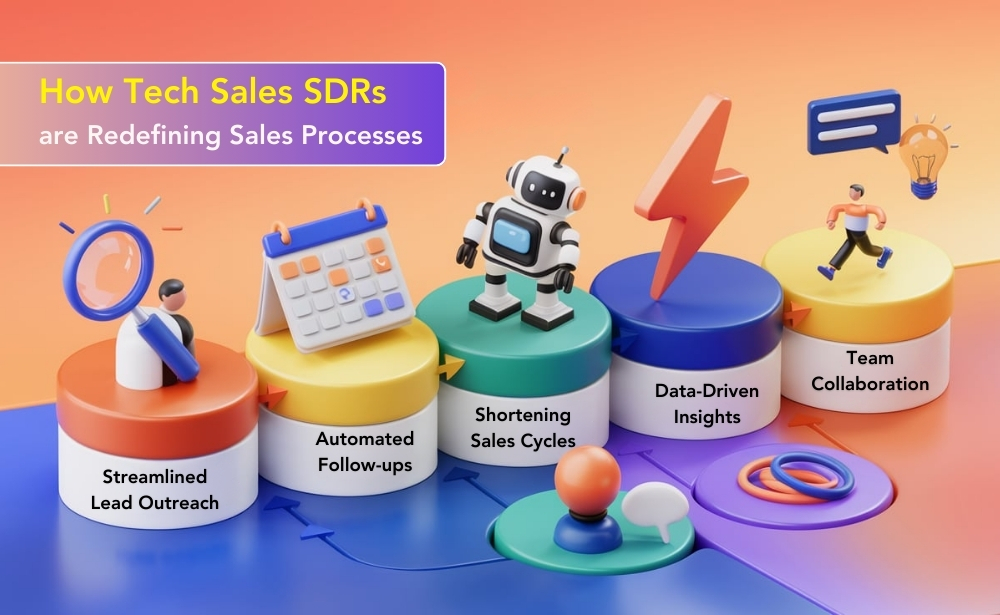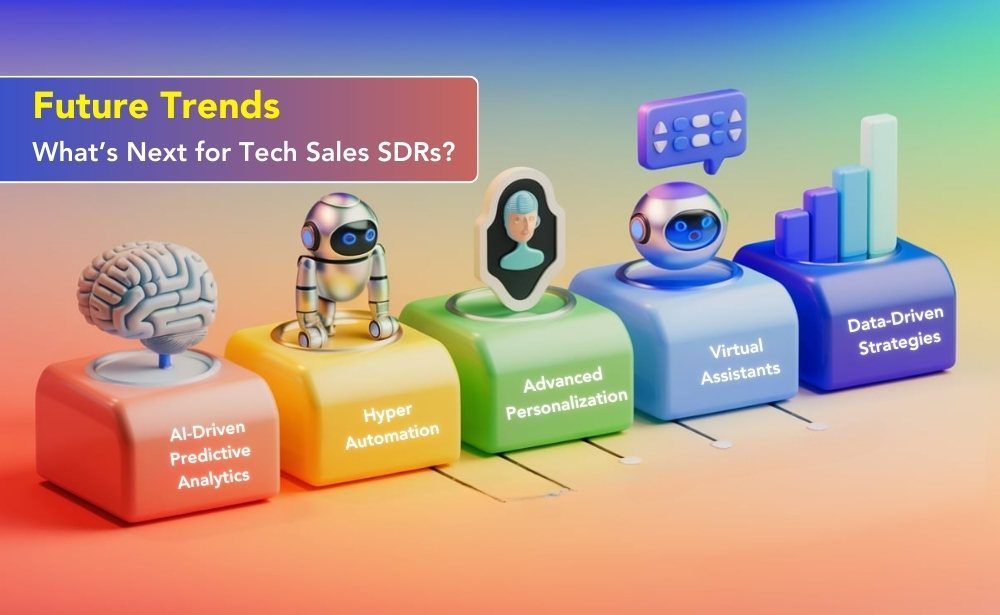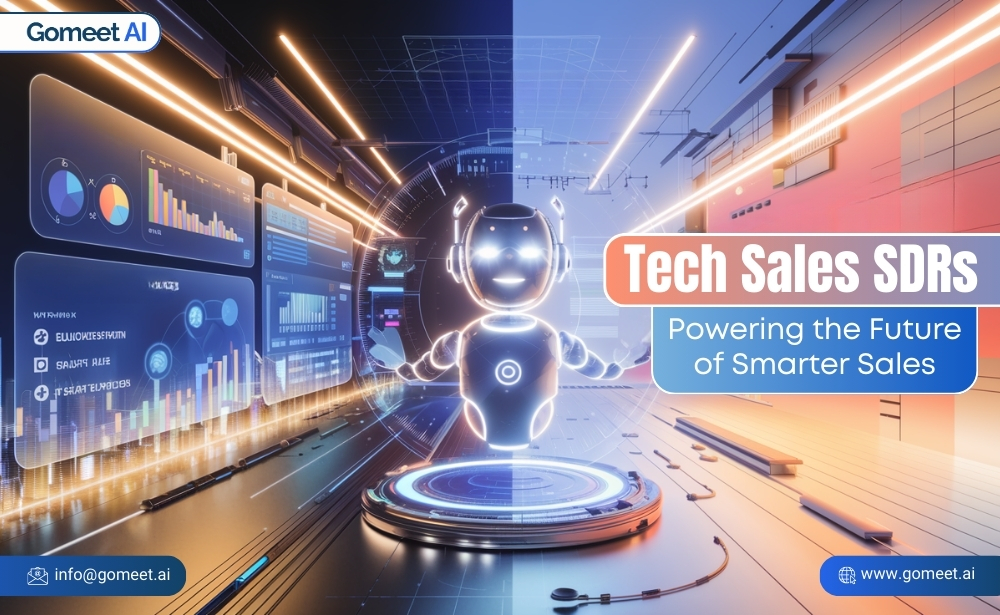The role of tech sales SDRs (Sales Development Representatives) is transforming how sales teams identify, nurture, and convert leads in this rapidly evolving B2B horizon. With technology advancing rapidly, businesses are moving beyond traditional methods to embrace automation, analytics, and AI-powered tools that enhance efficiency and results.
The integration of sales and technology has enabled SDRs to streamline workflows, improve outreach strategies, and redefine the sales process to meet the demands of modern buyers. This shift is not just about tools—it’s about empowering sales professionals to deliver better value and results.
In this blog, we’ll explore how tech sales SDRs are reshaping the future of sales and why leveraging technology is critical for staying competitive.
The Evolution of Sales and Technology
Over the years, sales teams have transitioned from manual, labor-intensive processes to highly automated workflows powered by cutting-edge tools. The evolution includes:
- Traditional Sales Models:
Manual lead research, cold calling, and follow-ups dominated traditional SDR workflows, which were time-consuming and prone to inefficiencies.
- The Rise of Technology:
With CRM tools, sales automation platforms, and AI solutions, SDRs can now manage leads, outreach, and pipelines more effectively.
- Tech-Driven SDRs:
Modern tech sales SDRs leverage AI and automation to:
- Identify high-quality leads faster.
- Personalize outreach campaigns.
- Analyze data for better decision-making.
Why Tech Sales SDRs are Critical for Modern Businesses
Tech SDRs are at the forefront of innovation in sales operations, bridging the gap between marketing and sales teams. Here’s how they drive impact:
1. Accelerating Lead Generation and Qualification
Traditional lead generation often relied on manual research, but tech sales SDRs use tools to automate this process.
- AI-powered platforms identify potential leads based on behavior and intent.
- Automated outreach systems qualify leads, ensuring SDRs focus only on high-priority opportunities.
Example: A SaaS business using AI-driven sales tools improved lead qualification accuracy by 30% and reduced response times.
2. Enhancing Personalization in Outreach
Modern buyers expect personalized experiences. SDRs powered by sales and technology use data insights to craft tailored messaging.
- CRM platforms provide detailed lead profiles, including past interactions and preferences.
- Automation tools customize follow-ups, ensuring relevant communication at every stage of the buyer’s journey.
Key Technologies Empowering Tech Sales SDRs
1. AI-Powered Sales Tools
AI is revolutionizing the SDR workflow by:
- Automating repetitive tasks like data entry and lead scoring.
- Predicting buyer intent through data analysis.
- Generating insights that inform better outreach strategies.
Example: Companies leveraging AI tools for lead management reported a 20% increase in conversions.
2. Sales Automation Platforms
Sales automation tools streamline tasks like email outreach, follow-ups, and meeting scheduling. SDRs save hours on manual tasks, focusing more on conversions.
- Automated email sequences ensure leads receive timely and relevant content.
- Analytics dashboards track open rates, replies, and engagement metrics.
3. CRM Systems
A modern CRM system integrates lead data, communication histories, and sales activities in one place, allowing SDRs to:
- Manage pipelines efficiently.
- Track interactions across multiple channels.
- Forecast sales performance with accuracy.
4. Data Analytics and Reporting Tools
Data-driven decisions are key to SDR success. Advanced analytics tools help tech sales SDRs measure:
- Lead response rates and conversion metrics.
- Outreach performance across campaigns.
- ROI of sales efforts for optimization.

How Tech Sales SDRs are Redefining Sales Processes
1. Streamlining Lead Outreach
Manual lead research and cold calling are now replaced by technology-driven processes. SDRs can identify and reach out to the most qualified leads in record time.
- Tools like automated dialing systems and AI-driven lead databases improve productivity.
- SDRs engage with prospects through the most effective communication channels, such as email, social media, or calls.
2. Shortening Sales Cycles
Tech sales SDRs leverage data to identify and address bottlenecks in the sales process, allowing businesses to close deals faster.
- Automated scheduling tools reduce delays in arranging meetings.
- AI platforms predict which leads are ready for outreach, cutting unnecessary steps.
Stat: Tech-enabled SDRs reduce the average sales cycle length by up to 25%, enabling faster deal closures.
3. Improving Collaboration Between Teams
With advanced tools, SDRs can align closely with marketing and account executives. Collaboration improves lead handovers and ensures prospects receive a seamless experience.
- Unified platforms track the entire sales funnel, ensuring no lead is lost.
- Real-time data sharing helps teams stay informed and aligned.

Future Trends: What’s Next for Tech Sales SDRs?
- AI-Driven Predictive Analytics:
Sales teams will use AI to analyze buyer intent, predict purchasing behavior, and focus on leads most likely to convert.
- Hyper-Automation in Sales Workflows:
Tools will automate complex workflows, from lead scoring to follow-ups, enabling SDRs to handle higher lead volumes.
- Advanced Personalization with AI:
Personalization tools powered by AI will analyze buyer personas to create hyper-relevant messaging for every lead.
- Integration of Chatbots and Virtual Assistants:
AI chatbots will handle initial inquiries, freeing up SDRs to focus on critical sales activities.
- Increased Focus on Data-Driven Sales Strategies:
SDRs will rely on data to fine-tune campaigns, improve conversion rates, and measure ROI effectively.

Conclusion
The role of tech sales SDRs is no longer limited to cold calling and manual lead research. By leveraging advanced tools and embracing sales and technology, SDRs are redefining the sales process to drive efficiency, personalization, and faster results.
From AI-powered sales platforms to automated outreach tools, technology empowers SDRs to focus on high-value tasks, engage leads effectively, and close deals faster. For businesses looking to stay competitive in 2025, investing in tech-driven SDR strategies is no longer optional—it’s essential.
Are you ready to empower your sales team with the latest tools and strategies? The future of sales starts with tech-powered SDRs!

